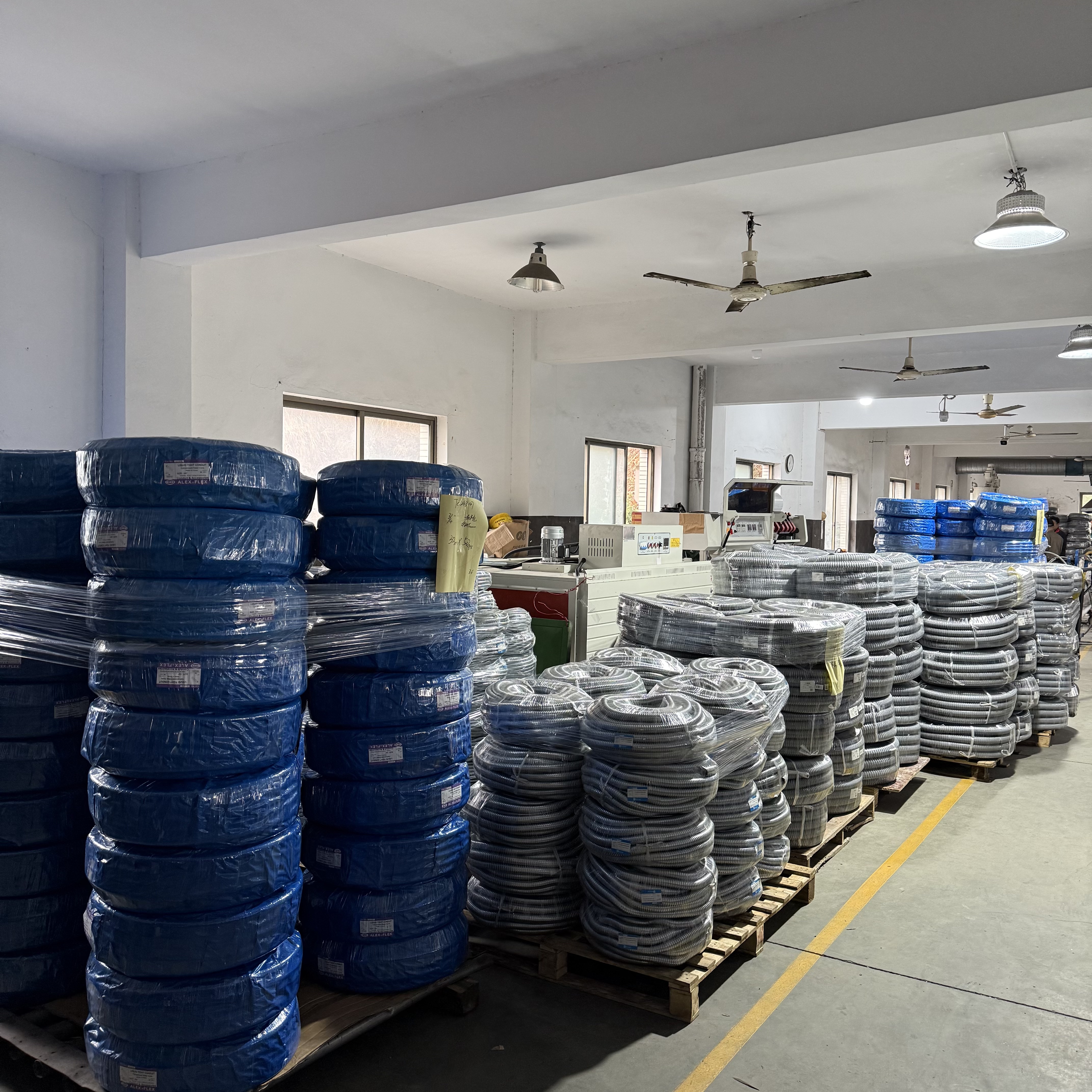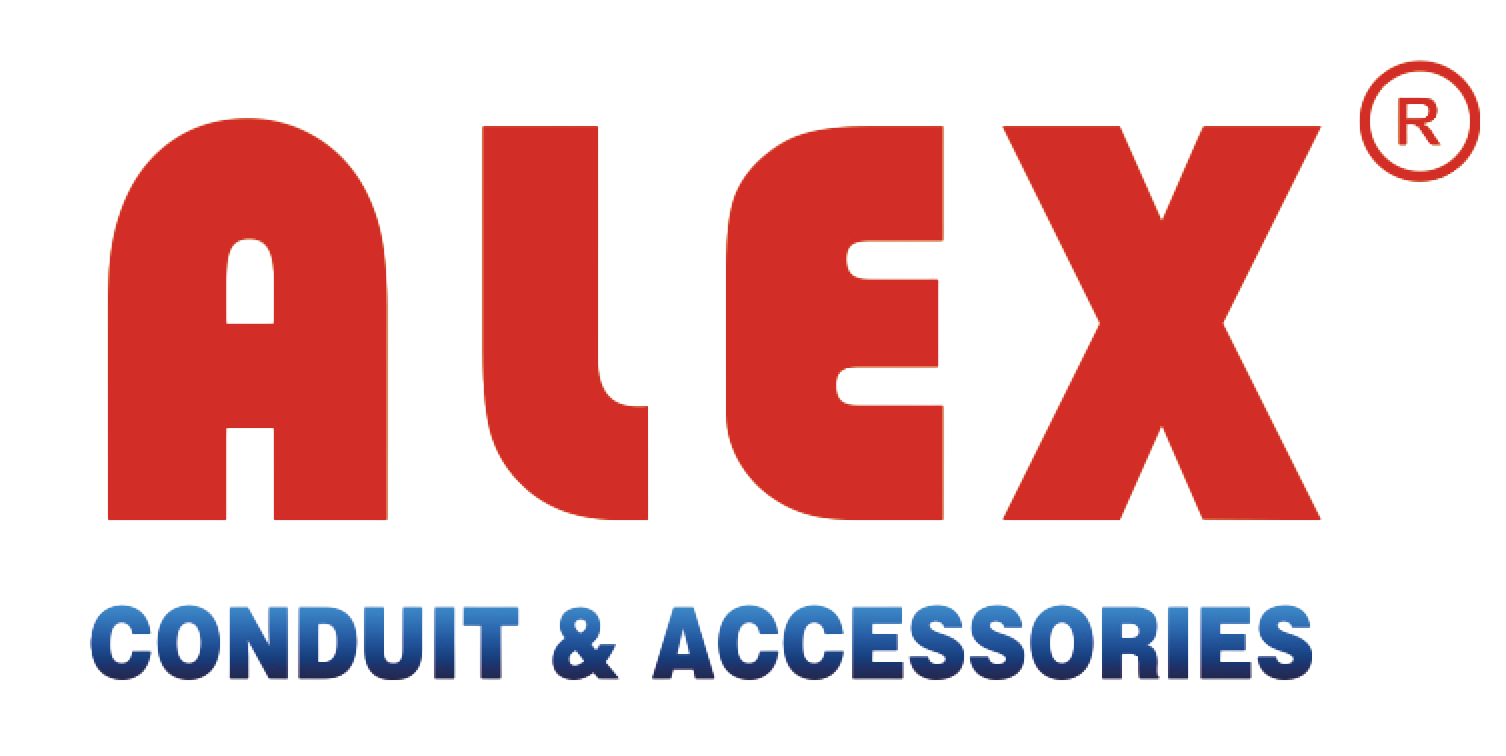What is a Steel Flexible Conduit?
Steel Flexible Conduit is a type of protective tubing used to route and shield electrical wiring in commercial, industrial, and residential installations. Known for its durability, flexibility, and high mechanical protection, steel flexible conduit plays a vital role in modern electrical systems—especially in environments where rigid conduit is impractical due to vibration, movement, or tight installation spaces.
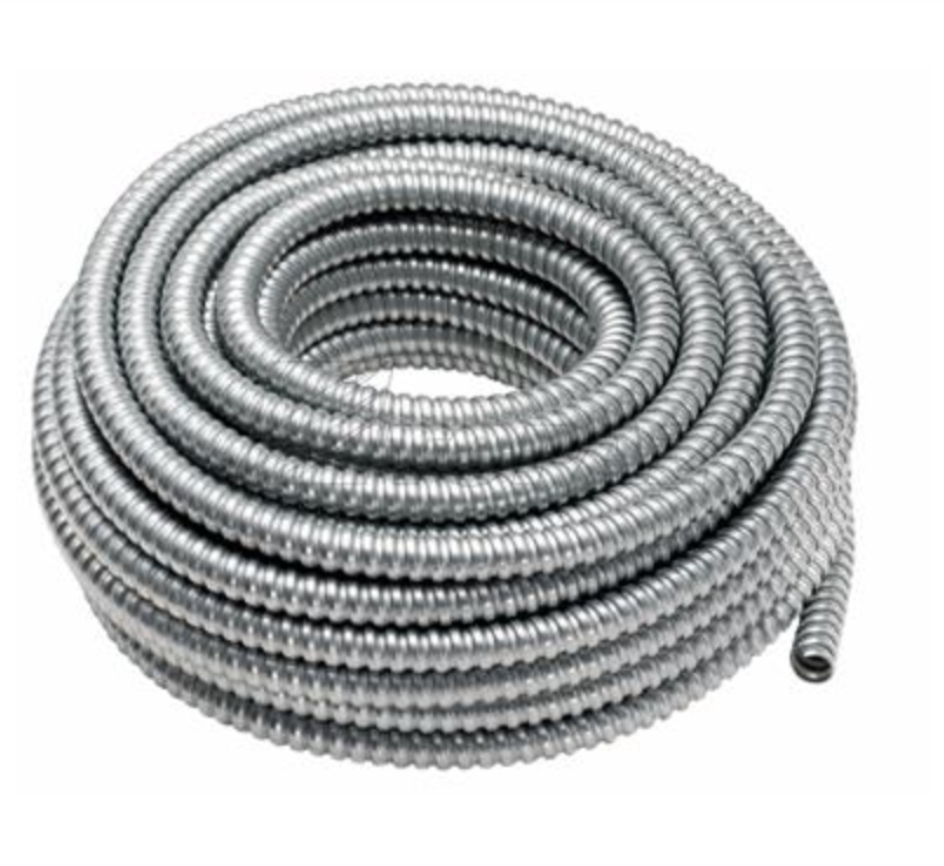
Structure and Materials
Steel flexible conduits are typically made from interlocked or continuously wound galvanized steel strips. There are two main structural types:
Interlocked Type: These have a helical, interlocking design that provides strength and flexibility. It’s often used in general-purpose applications. Interlocked type could make the flexible conduit even more stronger and not easy to broke, but the problem for interlocked is it takes more time to manufactuer.
Continuous (Wound) Type: Offers a smoother interior wall for easier wire pulling, commonly used for specific industrial or high-performance applications.
The steel used is usually electro-galvanized, providing resistance to corrosion, moisture, and certain chemicals.

*Interlocked Type
Types of Flexible Conduits
Flexible conduits come in several types, each designed for specific environmental and mechanical needs. Below are the most common types used in electrical and industrial installations:
Steel Flexible Conduit
Description:
This is a basic metal conduit made from helical interlocked galvanized steel strips, offering excellent mechanical protection while maintaining flexibility.
Features:
Durable and resistant to compression
Allows easy routing in confined spaces
Not water-resistant on its own (unless jacketed)
Common Uses:
Indoor industrial wiring, machinery, vibration-prone environments
Size chart for Steel flexible conduit
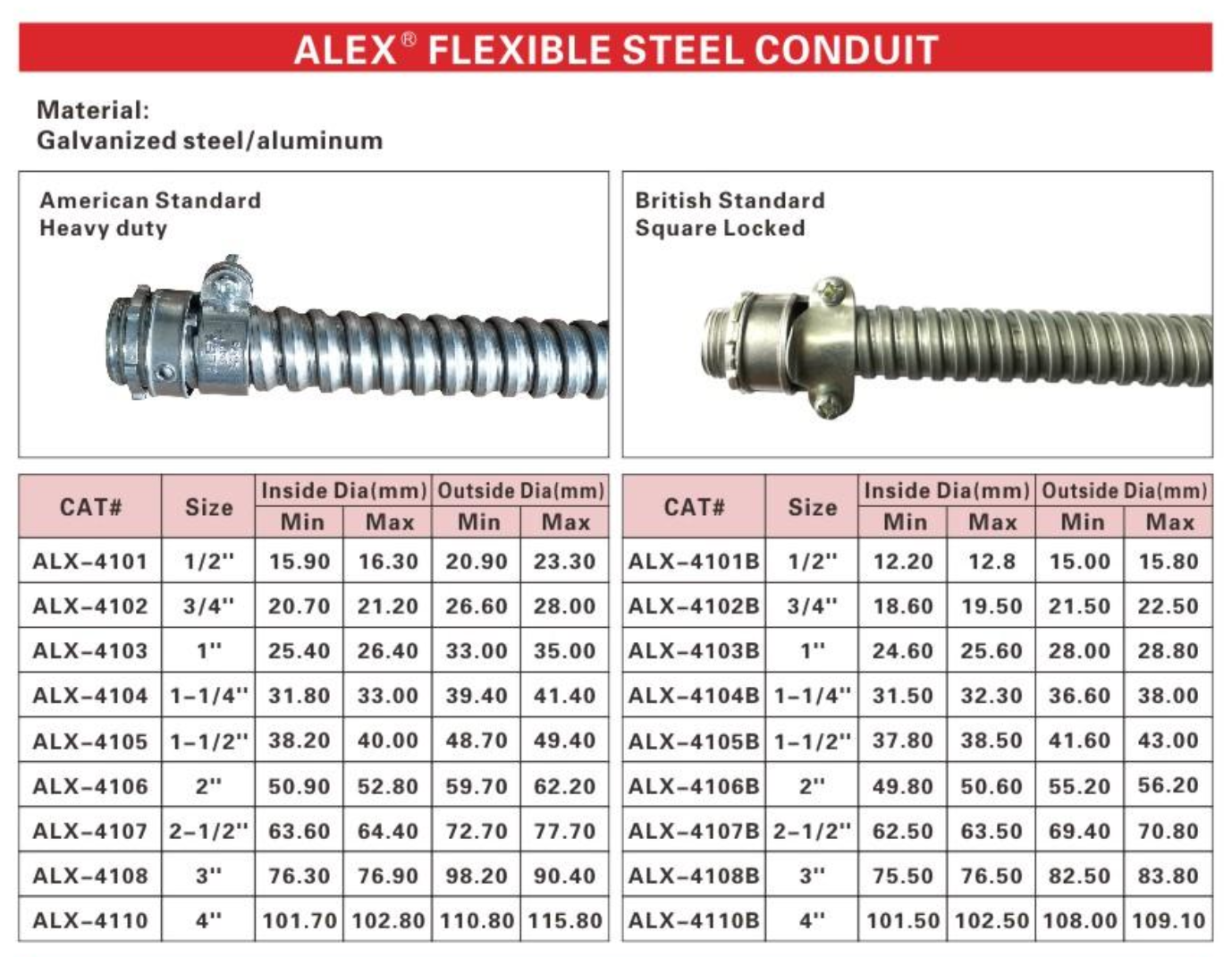
PVC-Coated Steel Flexible Conduit (Black or Gray)
Description:
This is a steel flexible conduit with an additional outer layer of PVC, enhancing resistance to moisture, chemicals, and sunlight.
*ALEX ONLY USE NEW PVC MATERIALS FOR ALL PVC RELATED PRODUCTS
Features:
Flame retardant and corrosion resistant
UV-stable for outdoor use
Smooth outer jacket for easy cleaning and added insulation
Common Uses:
Outdoor and chemical plant wiring, environments with oil, acid, or chemical exposure
Size chart for pvc-coated flexible conduit
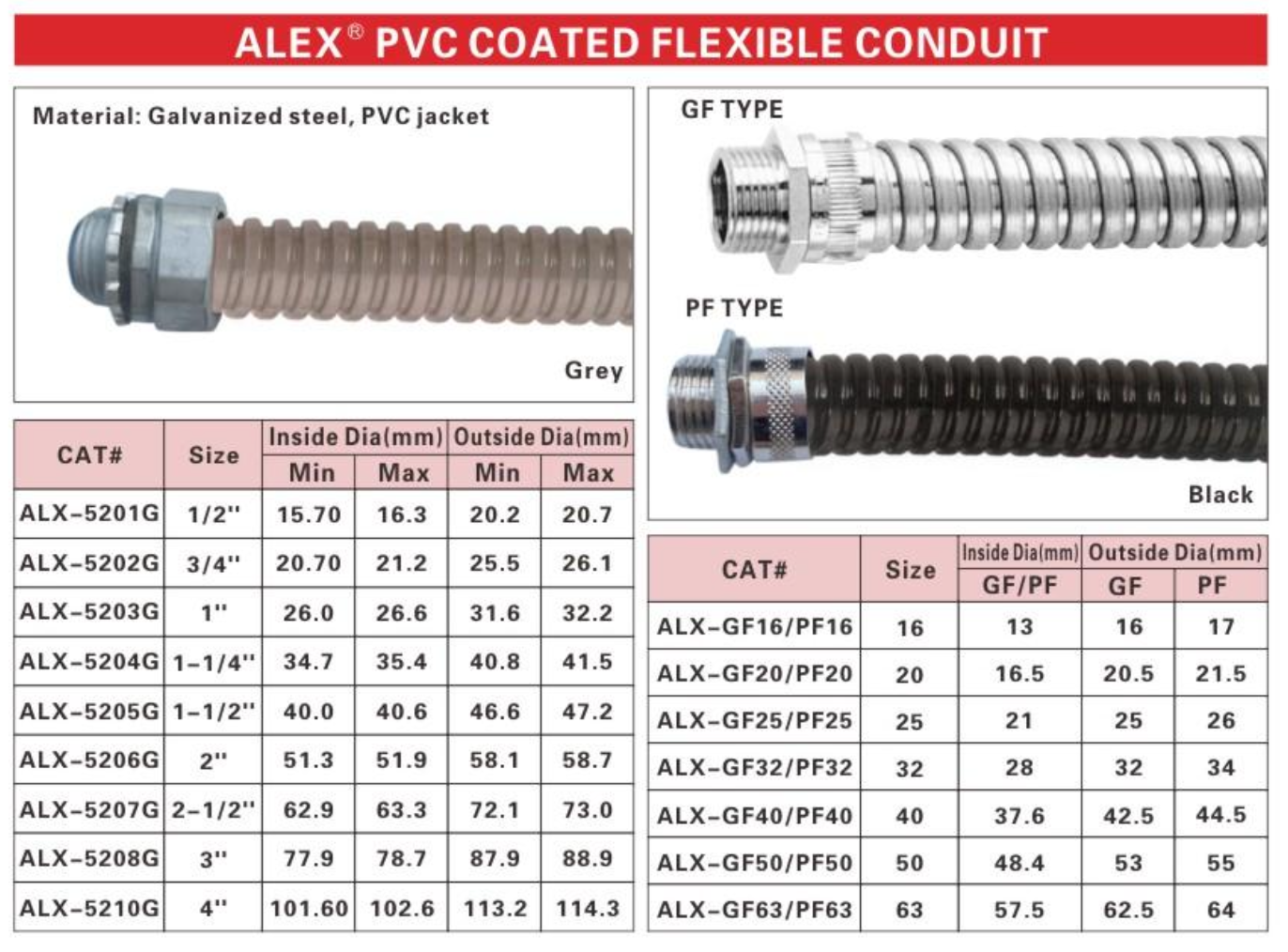
Liquid-Tight Flexible Metal Conduit
Description:
A specialized version of steel flexible conduit that includes a sealed thermoplastic jacket (usually PVC), making it waterproof.
Features:
Liquid-tight and weatherproof
Maintains metal core strength while resisting fluid ingress
liquid tight flexible conduit size chart and some most popular liquid tight connectors
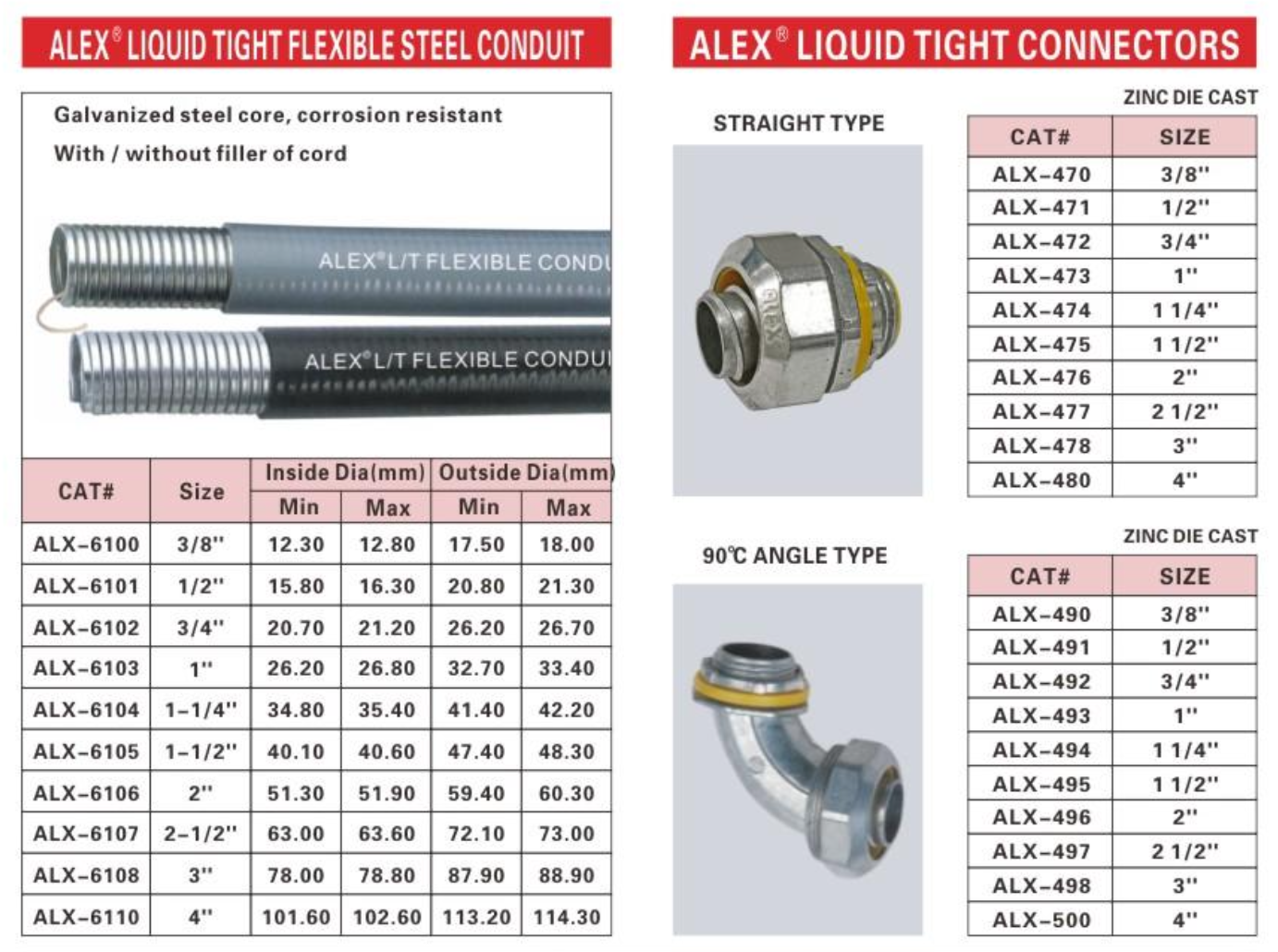
Non-Metallic Flexible Conduit
Description:
Made entirely from plastic, this type of conduit is extremely lightweight and corrosion-resistant.
Features:
Easy to cut and install
Non-conductive (ideal for low-voltage or communication wiring)
Cannot be used in high-heat or mechanically demanding areas
Common Uses:
Indoor lighting, low-voltage wiring, and cable protection in homes or commercial buildings
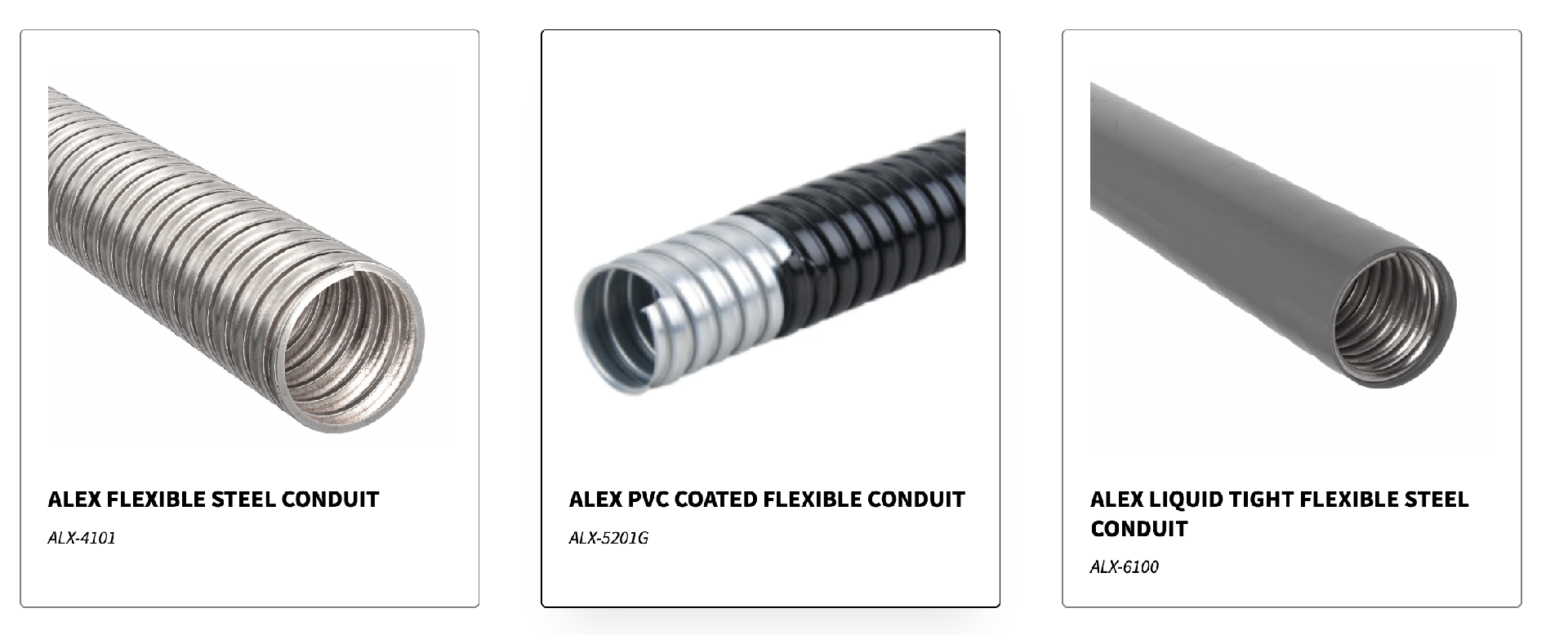
Common Applications
Steel flexible conduits are widely used in:
Industrial plants: Wiring for motors, pumps, and equipment exposed to vibration or heat.
Commercial buildings: Lighting, HVAC, and control systems.
Construction sites: Temporary wiring solutions.
Outdoor installations: Especially LFMC for power lines exposed to rain or moisture.
Machinery wiring: Where movement, bending, and flexibility are required.
Installation Considerations
Support and spacing: Must be adequately supported according to electrical codes (such as NEC in the U.S.).
Grounding: Some steel flexible conduits serve as an equipment grounding conductor; others may require a separate ground wire.
Connector fittings: Use appropriate liquid-tight or compression connectors depending on the environment.
Temperature rating: Choose conduit types rated for the ambient temperature of the application.
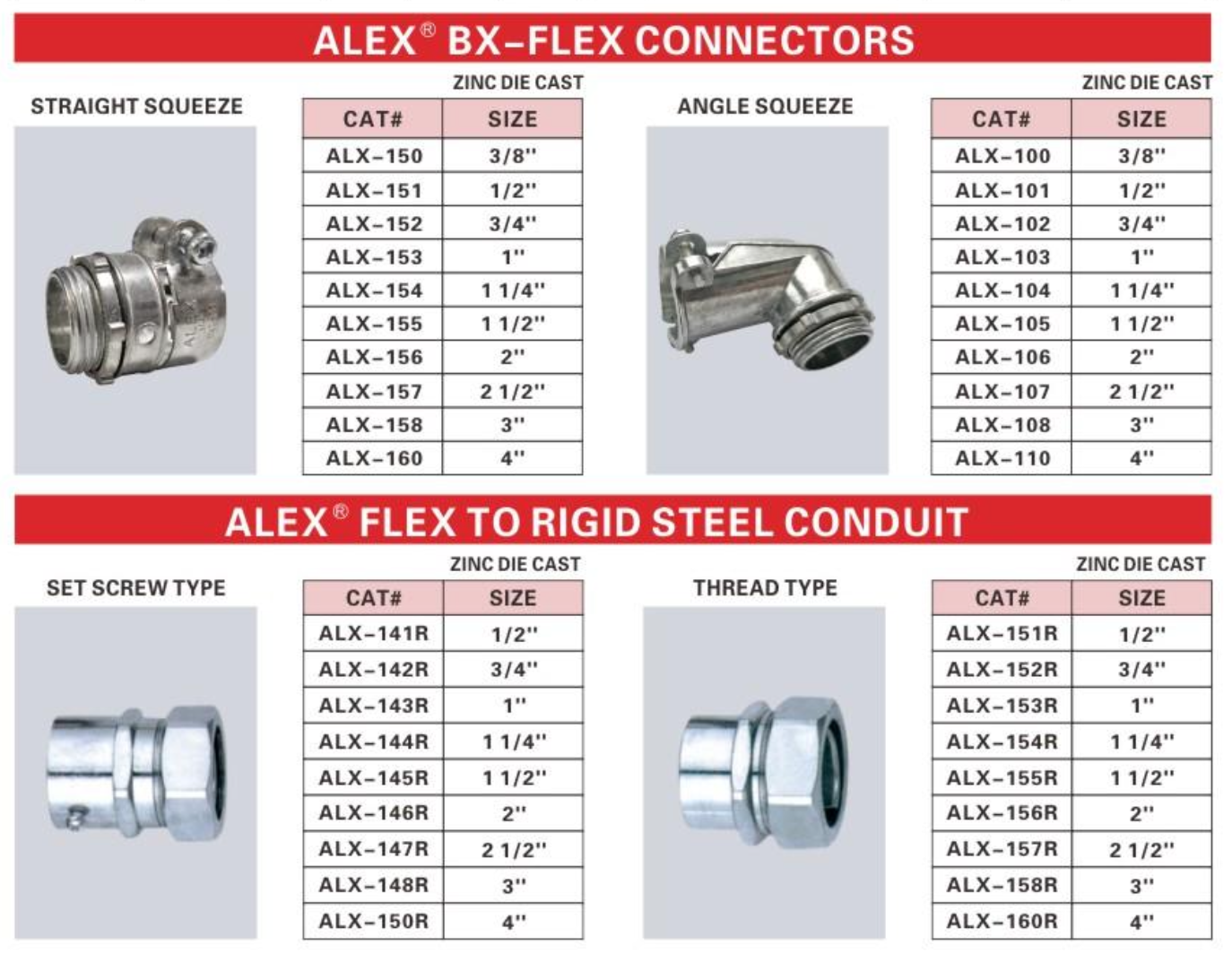
Conclusion
Steel flexible conduit is an indispensable component of electrical infrastructure where durability and adaptability are crucial. Whether you're wiring an industrial motor, protecting outdoor electrical lines, or routing cables through confined spaces, choosing the right type of steel flexible conduit can improve safety, reduce maintenance, and simplify installation.
When selecting a conduit, always consider the environment, mechanical stress, temperature, and moisture levels to ensure optimal performance and compliance with local electrical codes.

